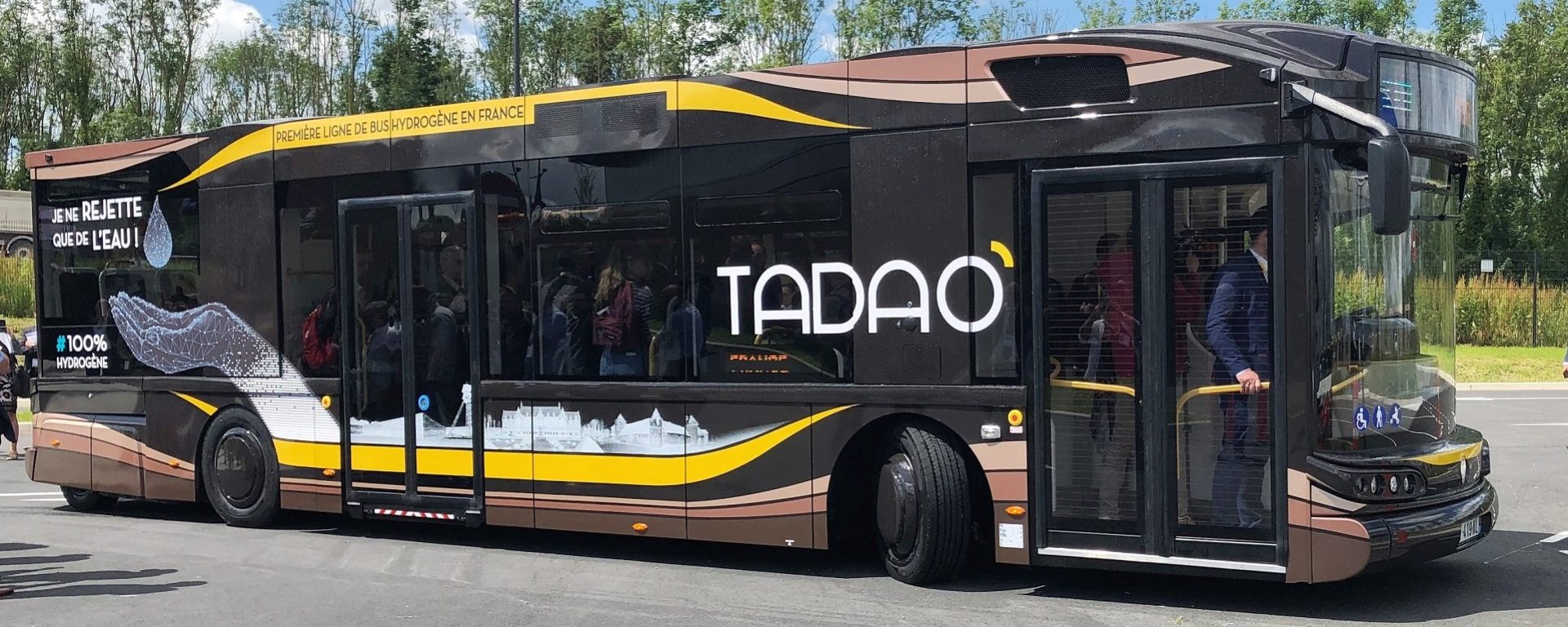For the last few months, new hydrogen vehicles have been on the road in our networks, specifically in Artois-Gohelle in northern France and Hoeksche Waard Goeree Overflakkee (HWGO) in the Netherlands, joining the pioneers in Eindhoven, also in the Netherlands.
Fuel cell electric vehicles hold promise and offer real advantages—their charging time and range in kilometers are similar to that of diesel vehicles, and yet they emit only water. However, before widespread adoption, there are challenges to surmount related to technology, such as fuel cell reliability; infrastructure, such as the need to build electrolyzers to produce «green» hydrogen from renewable energy; and economics, such as the high cost of the vehicles and their maintenance.
Nonetheless, our networks have already begun operating hydrogen vehicles:
- Artois-Gohelle (France) has operated five Safra buses in its network since November 2019
- HWGO (the Netherlands) has operated four VDL buses in its network since June 2020
- Eindhoven (the Netherlands) operated two VDL buses in its network between 2017 and 2019.
New Projects to Start Soon
Transdev is set to operate the first hydrogen bus in New Zealand. The Auckland network embarked on a retrofitting project to convert a diesel bus into a hydrogen bus. It is expected to be operational by early 2021.
The Toulouse-Blagnac airport network project Hyport falls under a regional framework. The electrolyzer built on site will serve a variety of local uses, including the fueling of four 12-meter Safra buses and one 10-meter Safra bus, all operated by Transdev. The official project launch is set for the third quarter of 2021.
Meanwhile, Connexxion is adding 20 Solaris buses, to be operational by the end of 2021, to its HWGO network fleet in the Netherlands. Auxerre, in France, plans to have its first five hydrogen vehicles in circulation in 2021. Finally, two Solaris buses are set to be deployed in the city of Gävle, Sweden in 2022.
France, Germany, and the European Union have announced financial aid for developing hydrogen technology, all of which should allow us to build on this great start and to learn more about operating fuel cell electric vehicles and more about their ecosystem, allowing Transdev to confirm its status as a zero-emissions leader.

